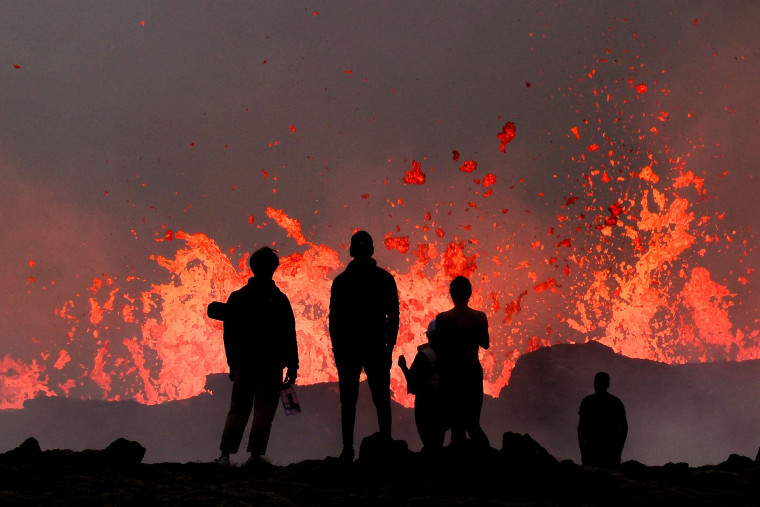Icelandic police have restricted access to a volcano that has been spewing out “life-threatening toxic gas pollution” since it began erupting on Monday, the department of civil protection and emergency management said.
Residents of the Reykjanes peninsula, near the capital Reykjavik, have been encouraged to sleep with windows closed and to switch off ventilation, the department said in a statement on Facebook late on Monday.
“The police, after counsel from scientists, have decided to restrict access to the eruption site due to enormous and life-threatening toxic gas pollution,” the department said.

“For the next hours, it is highly likely that gas will build up around the eruption site due to low wind. Those who have already undertaken the hike to the eruption site, or are already there, are strongly advised to leave the area,” it said.
The footage of the eruption shows that the fissure has shortened a lot and that the lava flow has ceased, Magnus Tumi Gudmundsson, professor of geophysics at the University of Iceland, told Icelandic national broadcaster RUV on Tuesday.
“It won’t be big, but it can last a long time. We are not seeing a continuation of what we saw in the first hours,” he said.
The Icelandic Met Office, Vedur, was not available to comment.
The eruption follows intense seismic activity over the past few days and is classified as a fissure eruption, which does not usually result in large explosions or a significant amount of ash in the stratosphere, the Icelandic government said in a statement late on Monday.